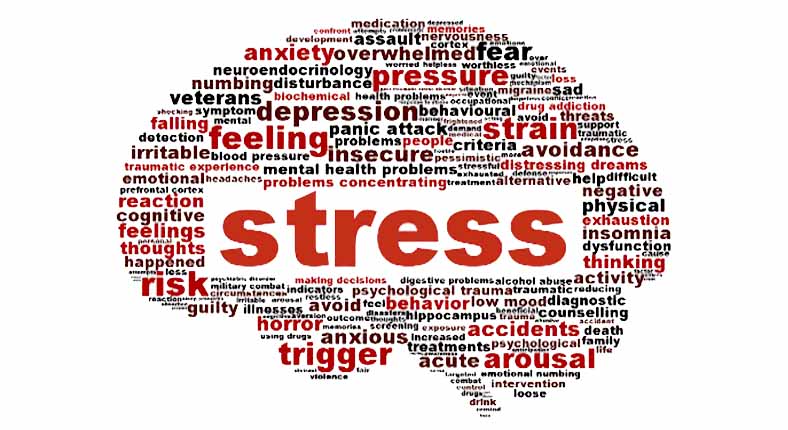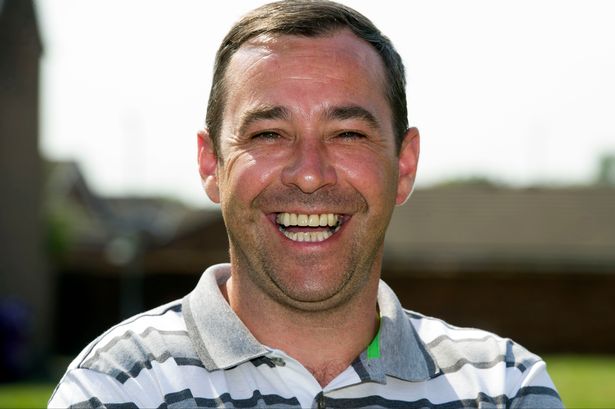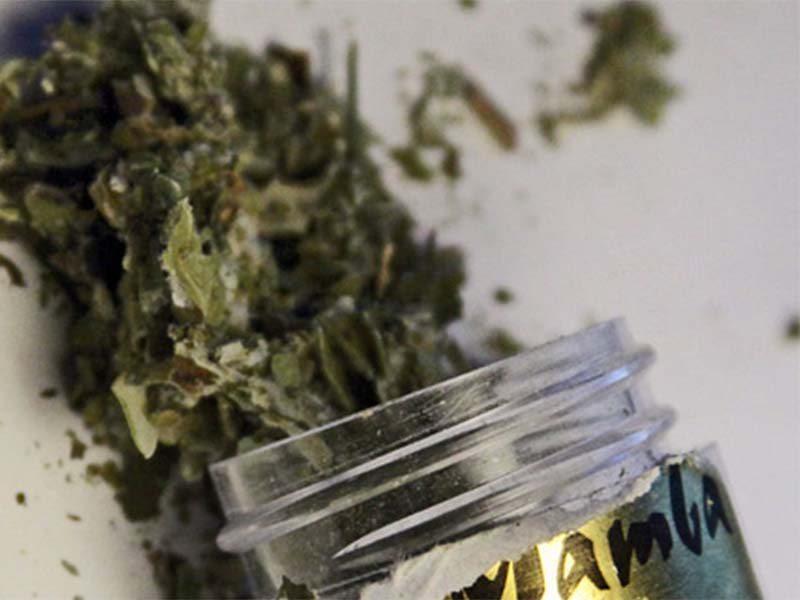
Written by:

Medically Reviewed by:
Last Updated:
January 20th, 2025
Cannabis Addiction | Signs, Symptoms and Effects
Cannabis, also known as marijuana, is a widely used recreational drug in the UK with nearly 8% of people aged between 16-59 having reported using it within the last year alone. Those numbers make cannabis one of the most prevalent drugs used in Britain, and although many individuals use it and never develop an addiction, it does come with its risks.
Despite the controversies around how addictive marijuana is, research has found that 30% of users will go on to develop marijuana use disorder. These statistics pose challenging questions about the role of this drug in society, and whether or not it should be considered a safe non-addictive substance or one that should be avoided at all costs.
What is cannabis and how does it work?
Cannabis is a plant that belongs to the Cannabaceae family and is currently a class B substance in the UK. This carries penalties of up to 5 years in prison and/or an unlimited fine if you are caught with it in your possession.
Cannabis contains compounds called cannabinoids, of which the two most well-known are tetrahydrocannabinol (THC) and cannabidiol (CBD). THC is the compound responsible for producing a euphoric high, while CBD does not affect a person’s state of mind and is now used to treat some medical conditions such as seizures. THC compounds interact with cell receptors in the brain responsible for physiological processes such as memory, mood, appetite, sleep and pain sensation. These interactions can influence how you may perceive and experience certain sensations or conditions.
Additionally, THC interferes with activity within the neurotransmitter GABA, and this is responsible for the sleepy or relaxing feelings associated with this drug. It is these chemical responses in the brain that make marijuana addictive and leave you coming back for more.
Cannabis is usually smoked (either as a ‘joint’ cigarette or via a ‘bong’ pipe) or baked into food and eaten (also referred to as ‘edibles’). Other common nicknames for cannabis or marijuana include Dope, Pot, Grass, Weed, Ganja, Hash, Skunk, Herb or Reefa.
Am I addicted to marijuana?
An addiction to marijuana is characterised by strong urges to use the drug, having an inability to control your consumption and continuing to take it despite being aware of the detrimental impact it is having.
Admitting to having a cannabis addiction can be tough – partly due to the increased acceptance of this drug in society today. It is easy to brush your cannabis use under the rug and put it down to some harmless fun. The reality, however, is that marijuana addiction can cause a great deal of damage to your health, career, finances and relationships.
If you are unsure whether your marijuana use equates to an addiction, take a moment to answer the following questions:
- Do you use increasingly larger amounts of marijuana to feel the same effects?
- Have you tried to stop taking marijuana but found yourself unable to?
- Have you lost interest in previously enjoyed activities, instead smoking marijuana?
- Do you try to hide or downplay the amount of marijuana you consume?
- Do you use marijuana as a way to cope with stress?
- Has your marijuana use impacted your work or school performance?
- Are you unable to get through the week without marijuana?
- Do you ever feel guilty or ashamed as a result of your marijuana use?
You do not need to answer yes to all of these questions to be suffering from an addiction to cannabis. If any of these questions struck a chord with you, you could benefit from treatment.
The effects of cannabis
The effects of cannabis can vary greatly from person to person – while some may experience profound hallucinations or thought processes, others may just feel a little drowsy. Generally speaking, cannabis can bring about feelings of relaxation, creativity and even euphoria. Like with other drugs, though, there is also a darker side to cannabis.
Some of the short-term effects of cannabis include:
- Decreased reaction time
- Loss of coordination
- Distorted perception
- Memory loss
- Anxiety and panic
- Paranoia
- Agitation and mood swings
- Increased heart rate
- Bloodshot eyes
- Dry mouth
- Extreme lethargy
- Increased appetite
Some of the long-term effects of cannabis include:
- Impaired cognitive function
- Difficulties with learning and problem solving
- Decreased satisfaction with life
- Increased risk of mental health issues, including depression, anxiety and schizophrenia
- Weakened immune system
- Respiratory issues
- Damage to heart health
The risk of developing an addiction and adverse side effects increase tenfold if marijuana is used from a young age. As the brain is still developing under the age of 25, using cannabis can cause a great deal of harm, even changing the structure and function of certain brain regions. Studies have shown that early use is also strongly linked with the development of psychiatric disorders later in life. In fact, frequent use of cannabis at a young age can double the onset rate of psychosis.
Cannabis addiction and schizophrenia
For years it has been recognised that there is a link between cannabis and schizophrenia – but there is speculation about whether cannabis actually causes it, or just exacerbates an existing condition.
Research has shown that cannabis can alter the age and onset of schizophrenia – meaning that the drug can trigger the first psychotic episode in individuals who are genetically predisposed to the condition. It was also found that chronic cannabis users with schizophrenia are likely to experience more severe symptoms and extended hospitalisation, even with antipsychotic treatment.
We can therefore conclude that cannabis both triggers and exacerbates symptoms in schizophrenic patients. This is especially true in strains of cannabis with high THC doses. Sadly, those suffering with mental health disorders also commonly turn to substances like marijuana as a way to self-medicate so the prevalence of cannabis misuse is significantly greater in this community.
If you are suffering from a co-occurring mental health issue alongside your cannabis addiction, Recovery Lighthouse has the experience and knowledge to support you through treatment. We look at each person as a whole, not just for their addiction, and this gives you the opportunity to improve every aspect of your life.
Spotting cannabis addiction in a loved one
Spotting cannabis addiction in a loved one can be difficult as the signs are not always obvious or easily noticeable, and often present subtly. It is important to be aware of the physical, behavioural and psychological symptoms which could indicate cannabis addiction so you can support your loved one in getting the help they need as soon as possible.
Some of the signs of cannabis addiction include:
- Changes in sleep patterns
- Increased appetite and weight gain
- Secretive behaviour
- Isolating themselves from friends and family
- Changes in social circle
- Lethargic appearance with bloodshot eyes
- Deterioration in hygiene standards
- Displaying a lack of motivation
- Confusion and forgetfulness
If you spot any of these signs and symptoms, it may be worth talking to your loved one calmly and addressing your concerns in a non-judgemental way. Remember that these may also be signs of other issues but if you notice them in a friend or family who uses cannabis regularly, then they are likely signs of cannabi addiction.
What treatment is available for cannabis addiction?
What so many people don’t realise is that cannabis addiction is a serious condition that can ruin lives so treatment is essential if you want to break the unhealthy relationship you have with this drug. While there are multiple treatment options available for combating a cannabis addiction, inpatient rehab is usually considered the most effective.
Inpatient, or residential, rehab provides 24-hour access to care through therapeutic support methods, including regular group and individual therapy sessions. The Recovery Lighthouse treatment programme also offers workshops and lectures that teach healthy coping skills, relapse prevention strategies, and lifestyle changes that will be helpful in managing long-term recovery goals.
Inpatient rehab gives you the opportunity to focus on developing positive habits without the external distractions of everyday life and with no access to cannabis.
What’s next?
Making the decision to overcome cannabis addiction is no easy task, and can be especially daunting if you are considering it for the first time. However, with careful planning and professional support, it is entirely possible to take back control of your life and turn a new page. Professional treatment options like counselling, outpatient programs, and residential rehabilitation at Recovery Lighthouse can help individuals make significant progress in establishing a healthier relationship with cannabis.
It is possible to move forward from addiction and towards success, but it will take a lot of hard work and dedication. It’s worth remembering, though, that the path to recovery begins with a single step – are you ready to make that step?






